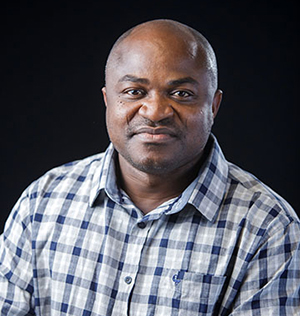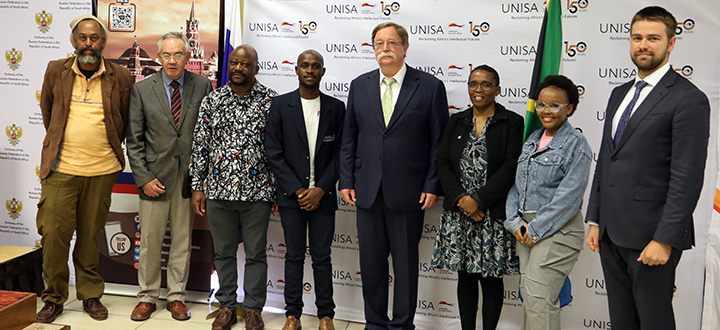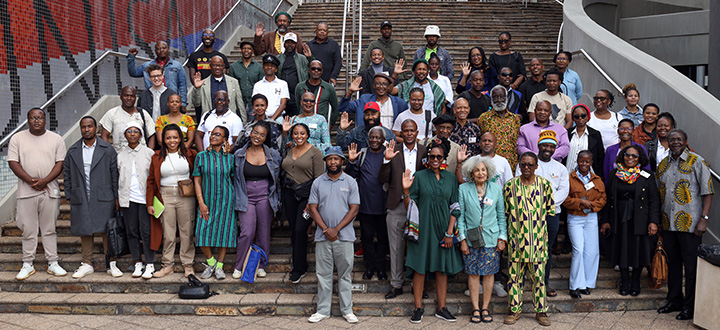College of Science, Engineering & Technology
Producing high-quality research is the goal

Prof Felix Bankole
Realising that there is a skills scarcity in the field of computing across the world, Prof Felix Bankole of Unisa’s School of Computing in the College of Science, Engineering and Technology (CSET) sees the need to continuously produce quality research. Bankole moved from a Y2 National Research Foundation (NRF) rating (2014-2020) to a C2 rating this year.
He says: "The rating shows the impact and quality of my research outputs in the past years, and how my work has been given recognition in the area of my expertise, both locally and globally." He adds: "Considering the skills scarcity in the field of computing across the world, this is good news in positioning CSET and Unisa as competitive and research-led places of learning."
Bankole’s academic journey can be traced back to several universities, both locally and globally, such as the University of the Western Cape and the Virginia Commonwealth University.
His current research focus is scoped around his master’s and doctoral students’ research developmental plan. He explains: "The body of the work is currently looking at the evolving digital technology economy platforms due to the aftermath of the global pandemic, Covid-19, thereby employing predictive analytics and decision-modelling using science-based machine learning algorithms." He states that this approach could be applied to all the developmental typological challenges such as education, health, transport, climate and other socio-economic matters.
"Access to telecommunication infrastructure, increasing computing storage capacity and high data management have simplified the process of digitalisation," says Bankole. "These have created technological expansion and widened platform-based economies where people trade their services globally." For Bankole, the digital revolution aftermath of the pandemic increased risk-led polarisation and widened income inequalities. Business closures soared, and productivity gains have accrued mainly to few wealthy and skilled individuals.
The main objective of his research is to address how data flows on these platforms can be harnessed to solve these issues. "These would be addressed by identifying the key technologies causing the evolution of digital economy during or in the aftermath of the global pandemic, these being robotics, artificial intelligence, the internet of things (IoT), cloud computing and big data analytics," he elaborates.
Bankole believes that computing is evolving as a discipline, especially concerning information systems / information technology. "This means that one should keep improving and extending on the previous research," he says.
Bankole remarks that his current NRF rating is based on research outputs and impact as perceived by both local and international peer reviewers. "It identifies how important my research is in the field and gives recognition for the high-quality research outputs produced," he concludes. "It also serves as a resourceful track to obtain funding for future projects."
* By Nancy Legodi, Acting Journalist, Department of Institutional Advancement
Publish date: 2021-06-22 00:00:00.0

 Unisa's student leadership engage with Russian ambassador
Unisa's student leadership engage with Russian ambassador
 Re-igniting and re-imagining Pan Africanism, Afrocentricity and Afrofuturism in the 21st century
Re-igniting and re-imagining Pan Africanism, Afrocentricity and Afrofuturism in the 21st century
 Young Unisa science stars join elite Lindau Nobel Laureate group
Young Unisa science stars join elite Lindau Nobel Laureate group
 Education MEC addresses Unisa autism seminar
Education MEC addresses Unisa autism seminar
 Seven Unisans nominated for the NSTF-South32 Awards 2023/2024
Seven Unisans nominated for the NSTF-South32 Awards 2023/2024